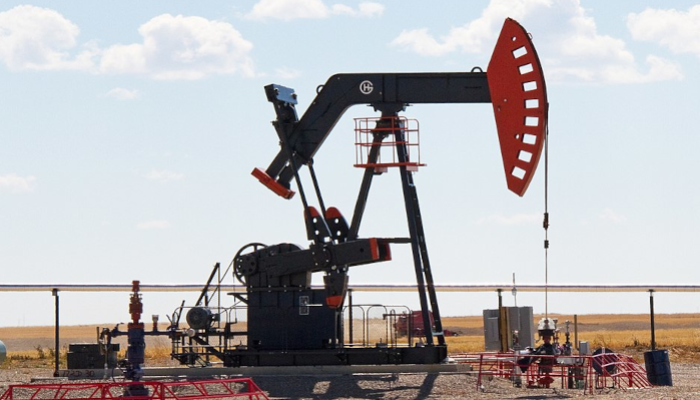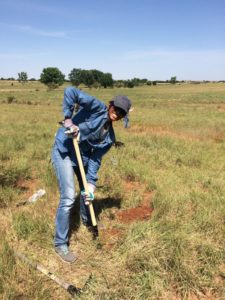
Moving a country for a new job is a big step, but at the same time changing from an industry job to academics is definitely a leap in the unknown. This week Arushi Saxena, currently a post-doc at the University of Florida, writes about her experience taking these two steps at the same time.

As geodynamicists, we are well aware that our numerical models are a function of the input parameters. A researcher interested in earthquake dynamics would focus on the elastic wave propagation from the energy released as a consequence of the forces acting on the fault on temporal scales of minutes to years and spatial scales of tens to hundreds of kilometres. However, a team working on mantle convection may be more interested in how the viscous mantle flows in response to the buoyancy forces arising from the density contrasts in the mantle, which involves large-scale models spanning thousands of km modelled over millions of years. Like a geophysical model, our own lives can be analysed in terms of applied forces – whether internal or external, known or unknown – and evaluated over different time and spatial scales.
My professional life today, like many of us, has been shaped by some key decisions and a myriad of small choices. Six years ago, I was a college graduate from India working in the oil industry, exploring oil traps in Nigeria. It would have been difficult to imagine then that my future self would be researching geodynamics in the US. The driving force to pursue my PhD was, in fact, an opposing buoyant force from my job experience. I felt cerebrally stunted as each day I tediously picked seismic reflectors using software and a mouse. Additionally, I constantly felt ethical turmoil knowing how the oil companies have been exploiting the resources of Nigeria while polluting the environment and disturbing entire ecosystems (Ajibade and Awomuti, 2009; Oluduro and Oluduor, 2015) to the detriment of both the people of Nigeria and future generations who will have to inhabit an ever-hotter Earth. But the dissatisfaction came to an end when I got an offer to pursue my doctorate from the Center for Earthquake Research and Information, Memphis, TN, USA (https://www.memphis.edu/ceri/). I was fortunate to exist in a field of positive external forces from friends and family who supported this decision to begin a new chapter in my life.
Moving to the West, I expected an initial cultural shock but would describe my experience as a more moderate cultural surprise. One of the first impressions of living in the southern US was how sparsely populated it is; such vastness in India is a rarity even in the rural areas. The plenitude was astonishing for me in other areas as well, whether ordering a “small” plate of fries at a restaurant or stepping into an echoing department store. I was also amazed by the warmth of the people around me. One of my fondest early American memories was when I asked a stranger for directions to the campus cafeteria and somehow became engrossed in a conversation about California earthquakes. Brought up in India, where thanks to centuries of British influence the staple beverage is an English tea, I thought it strange that every single one of my co-workers dutifully prayed before the Shrine of Mr. Coffee every morning without fail. I still remember the bemused looks during one of the coffee discussions as I opened an instant Nescafe sachet and added milk and sugar into my mug. Other memorable moments in my transition included having to learn the Unix-based operating systems from scratch and participating in departmental events like the annual Halloween pumpkin carving and chili contest. However, any awkwardness was eased by fellow students who came from all over the world and were in similar shoes as me.
The change from industry to PhD was challenging for me. Even though I was only taking courses during my first semester, I felt like I was under tremendous pressure. With the independence to choose class projects, which could later be extended into a research project, I was unable to define the limit on the amount of work I wanted to do. I set myself very high goals and ended up feeling disappointed with myself when I failed to achieve them. This was in contrast to the clear framework of my previous job, where I knew exactly what to do, and only had to worry about disappointing my manager. However, the faculty and staff were understanding and patient, which reduced my stress considerably. Positive reinforcement from my committee was also refreshing and motivated me to work harder. I was especially delighted to be part of the collaborative culture in academia as opposed to the close-knitted and self-serving environment of my former job. Another noticeable difference from Industry was the variety of research areas open to me. The curriculum in my undergraduate institute was limited to the near-surface geophysical methods, and it was only during my second semester of PhD coursework that I even encountered geodynamics. The ability to explore the depths of the Earth and simulate a problem in time fascinated me and dwarfed the small strains I was facing during the shift into academia.
Sometimes in the middle of my numerical model runs, enjoying dark roasted coffee, I wonder if an alternate universe version of myself is still clacking away in front of a computer and feeling resentment at the work, or if the commotion inside simply equilibrated, resulting in a high-stress system. I will never know, but I am happy to feel that I have achieved a steady state in life.
Ajibade, I. T., & Awomuti, A. A. (2009). Petroleum exploitation or human exploitation? An overview of Niger Delta oil producing communities in Nigeria. African Research Review, 3.1. Oluduro, O. F., & Oluduor, O. (2015). Oil Exploitation and Compliance with International Environmental Standards: The Case of Double Standards in the Niger Delta of Nigeria. JL Pol'y & Globalization, 37, 67.
